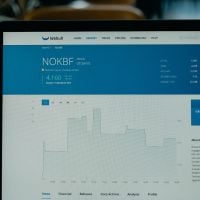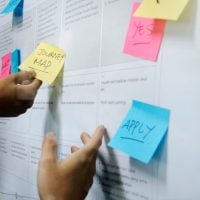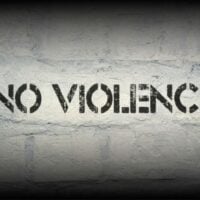Deadline: 1-Feb-24
The Bureau of Democracy, Human Rights and Labor (DRL) announces a Request for Statements of Interest (RSOI) outlining project concepts and capacity to manage programs in Iraq that will: strengthen effective governance, political participation, and civic activism; promote fundamental freedoms; and support atrocity prevention, accountability, and reconciliation.
Objectives
- U.S. human rights and democracy assistance in Iraq is designed to promote representative governance based on democratic principles, respect for human rights and fundamental freedoms, and peaceful coexistence. It also seeks to provide for the protection of and advocacy for the rights of children and youth, women, and religious and ethnic minorities, and others in vulnerable circumstances, as well as mitigate the impact of conflict on Iraqi communities.
- Proposed programming must be responsive to immediate needs in-country; flexible in its ability to respond to the shifting context; and in line with the U.S. Government’s democracy, governance, and human rights goals for Iraq. Programming must contribute to and support Iraqi-led efforts where possible. Helpful resources for applicants include the annual Iraq Human Rights Report,
Categories
- There are three categories under which organizations may apply, detailed in full below. These categories are:
- Effective Governance, Political Participation, and Civic Activism
- Programming should promote inclusive, transparent, and responsive governance and services to communities in Iraq. DRL recognizes the intersectional nature of democracy, good governance, and respect for fundamental freedoms and human rights. Applicants may consider program topics below or may propose other themes or topics that best respond to the Iraqi context. These include efforts to:
- Promote citizen participation in political and civil institutions and processes, at the local and national level, including addressing barriers to access for marginalized and vulnerable populations such as women, youth, persons with disabilities, and religious and ethnic minorities.
- Promote meaningful participation and leadership of women and marginalized populations in decision-making institutions, including the federal and provincial government. Successful concepts must address the increasing restrictions placed on women’s empowerment organizations.
- Programming should promote inclusive, transparent, and responsive governance and services to communities in Iraq. DRL recognizes the intersectional nature of democracy, good governance, and respect for fundamental freedoms and human rights. Applicants may consider program topics below or may propose other themes or topics that best respond to the Iraqi context. These include efforts to:
- Fundamental Freedoms
- Programming should protect and advance fundamental freedoms, including freedom of the press, expression, association, religion, and peaceful assembly. Applicants may consider program topics below or may propose other themes and topics that best respond to the Iraqi context. These include efforts to:
- Address backsliding of fundamental freedoms and sustain Iraqi civil society’s ability to engage safely and effectively on democracy and human rights, including through efforts that provide legal support or operational security assistance to civil society organizations engaged in democracy and human rights work.
- Address the spread of disinformation campaigns, hate speech, and discriminatory media coverage, particularly those targeting activists, human rights defenders, female political candidates and elected officials, and other vulnerable and marginalized populations.
- Programming should protect and advance fundamental freedoms, including freedom of the press, expression, association, religion, and peaceful assembly. Applicants may consider program topics below or may propose other themes and topics that best respond to the Iraqi context. These include efforts to:
- Atrocity Prevention, Accountability, and Reconciliation
- Programming should support inclusive efforts to protect human rights, reduce and prevent violence, promote accountability for human rights violations, and rebuild trust within and between communities and between citizens and the state. Applicants may consider program topics below or may propose other themes and topics that best respond to the Iraqi context. These include efforts to:
- Protect, support, and empower survivors of sexual and gender-based violence (SGBV), including those affected by technology-facilitated gender-based violence (TFGBV).
- Support justice and accountability efforts for atrocities and human rights abuses within communities and at the national level, including tackling impunity for abuses committed against peaceful protestors. Promote rehabilitation and reintegration of individuals and communities affected by conflict, including but not limited to those affected by the ISIS genocide.
- Programming should support inclusive efforts to protect human rights, reduce and prevent violence, promote accountability for human rights violations, and rebuild trust within and between communities and between citizens and the state. Applicants may consider program topics below or may propose other themes and topics that best respond to the Iraqi context. These include efforts to:
- Effective Governance, Political Participation, and Civic Activism
Funding Information
- Budget requests may range from a floor of $750,000 to a ceiling of $2,500,000. The period of performance may range between 18 and 48 months.
Ineligible Activities
- Activities that are not typically considered competitive include, but are not limited, to:
- The provision of humanitarian assistance;
- English language instruction;
- Development of high-tech computer or communications software and/or hardware;
- Purely academic exchanges or fellowships;
- External exchanges or fellowships lasting longer than six months;
- Off-shore activities that are not clearly linked to in-country initiatives and impact or are not necessary due to security concerns.
Eligibility Criteria
- Organizations submitting SOIs must meet the following criteria:
- Be a U.S.- or foreign-based non-profit/non-governmental organization (NGO), or a public international organization; or
- Be a private, public, or state institution of higher education; or
- Be a for-profit organization or business;
- Have existing, or the capacity to develop, active partnerships with thematic or in-country partners, entities, and relevant stakeholders including private sector partner and NGOs; and,
- Have demonstrable experience administering successful and preferably similar programs. DRL reserves the right to request additional background information on organizations that do not have previous experience administering federal awards. These applicants may be subject to limited funding on a pilot basis.
- Applicants may form consortia and submit a combined SOI. However, one organization should be designated as the lead applicant with the other members as sub-award partners.
For more information, visit Grant.gov.









































